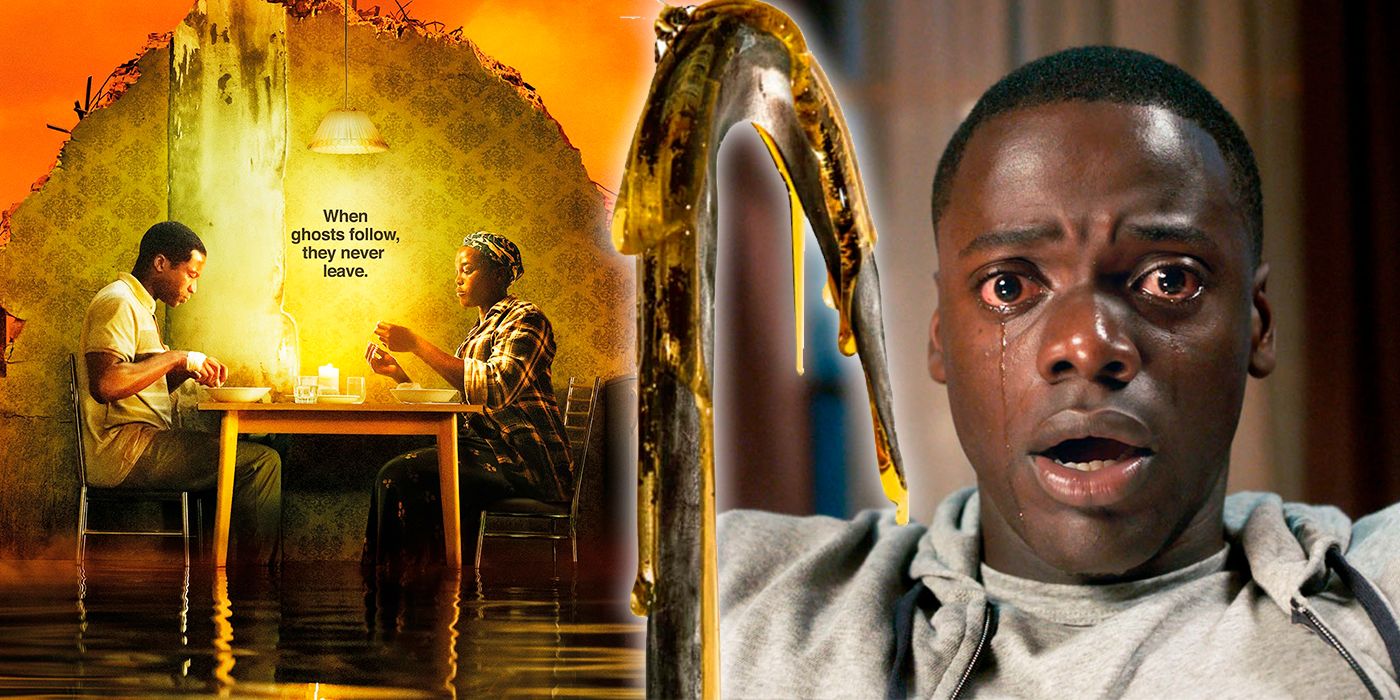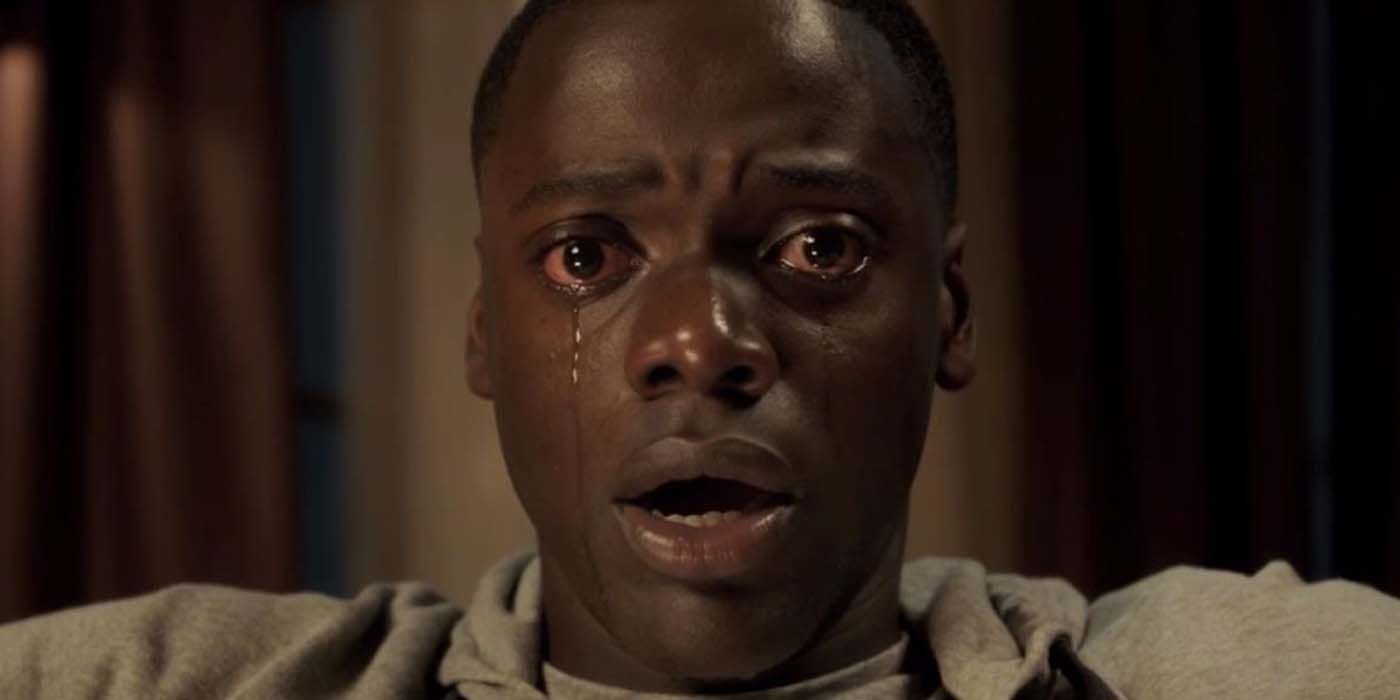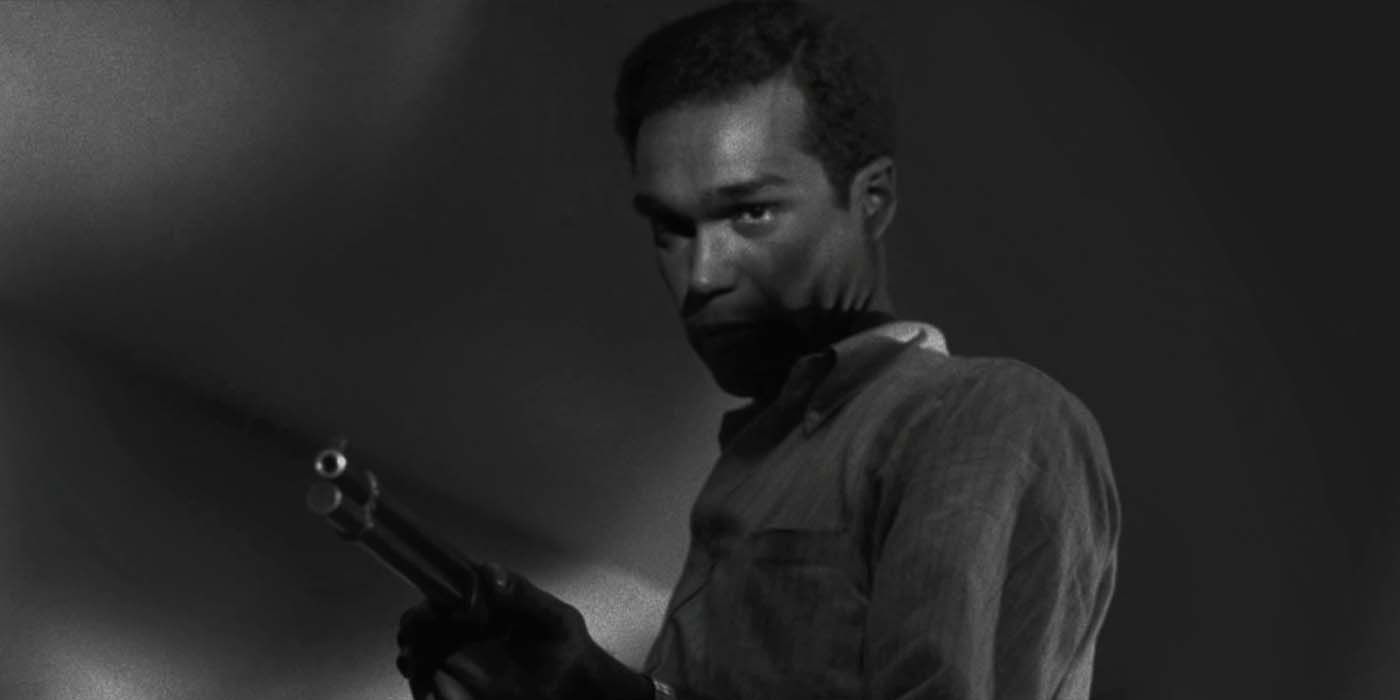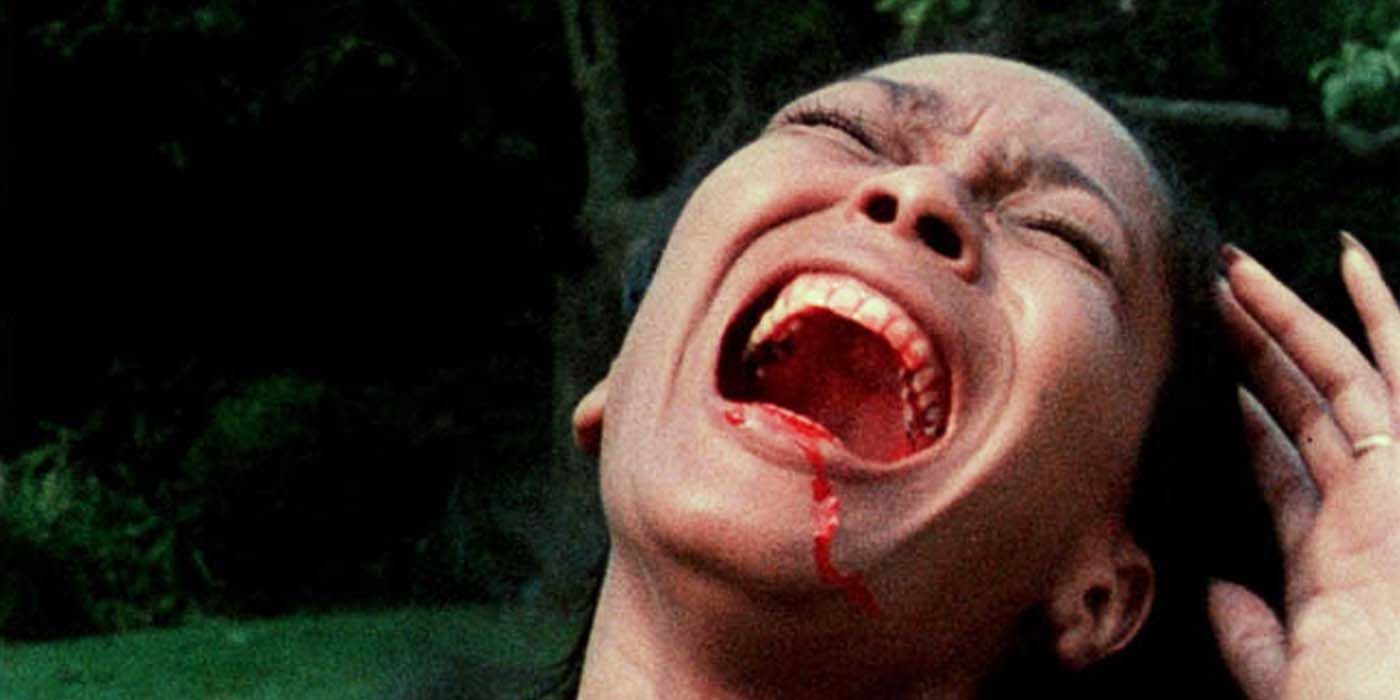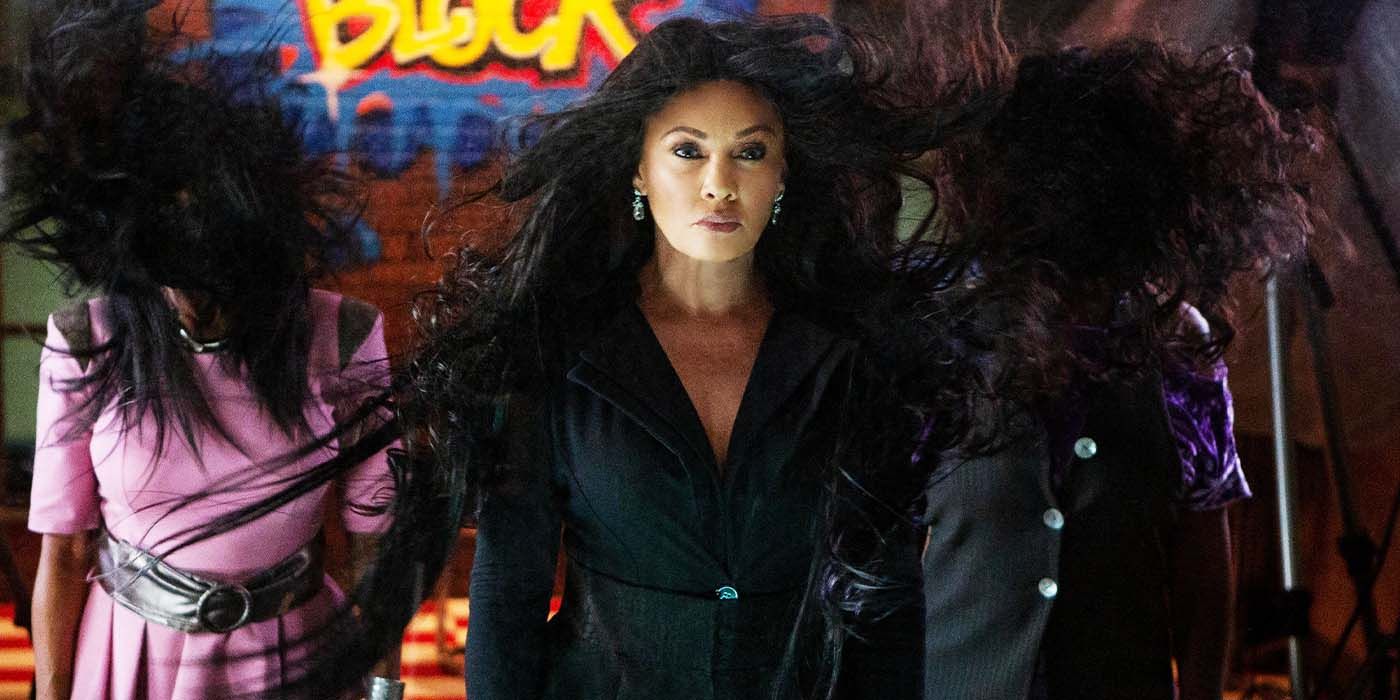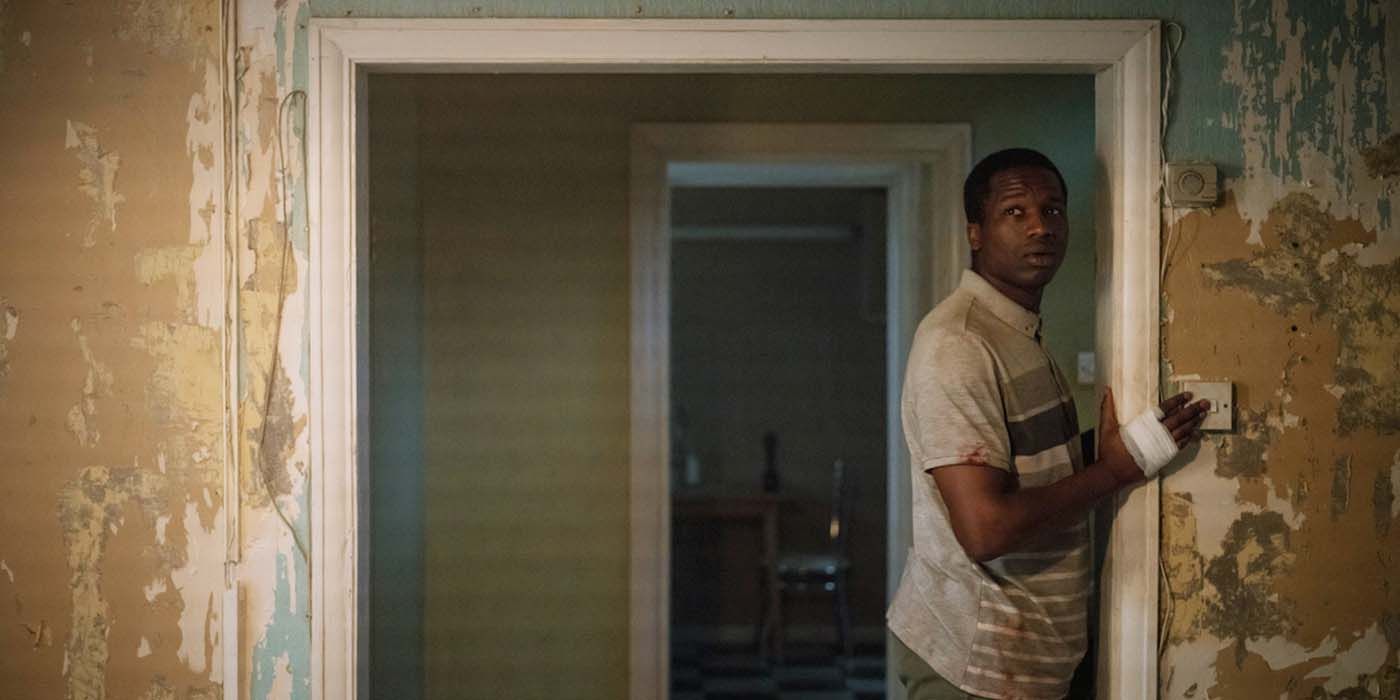Telling Black stories with authenticity and nuance has always been a struggle for Hollywood, but the success of Nia DaCosta’s Candyman is helping to turn that around. The film, produced by Jordan Peele, is a “spiritual sequel” to the 1992 film of the same name and is set in Chicago’s Cabrini-Green, where the hook-handed Candyman is more than just an urban legend.
Like other Black horror films, Candyman is a vehicle for filmmakers to address issues that affect the Black community, like systemic racism, ancestral trauma, gentrification and appropriation. It’s important to elevate stories that can unpack these themes without compounding on existing Black pain. Fortunately, Candyman isn’t the only film to pass that test. Here are five other Black horror movies that balance social commentary with brutal scares at every turn.
Get Out Delivers Nuanced Black Characters and Satire
Jordan Peele helped jumpstart the Black horror renaissance with his debut film in 2017. The film follows Chris (Daniel Kaluuya) as he meets the family of his white girlfriend, Rose (Allison Williams). At first, Rose’s parents seem like the performative, liberal sort of folk encumbered by white guilt and enamored with Black culture -- much to Chris’s relief. But the more time Chris spends in their upstate suburb, the more he realizes that their enthusiasm is motivated by something much more sinister.
Get Out was the first horror film in recent years to feature Black characters with nuance and wit while satirizing racial dynamics and appropriation. The film had a huge part in introducing Kaluuya, LaKeith Stanfield and Lil Rel Howery to the world at large and also signaled a massive tonal shift for Peele, who before was known only for his sketch comedy show Key and Peele.
Night of the Living Dead Cast a Black Lead Despite Controversy
This 1968 classic, directed by George A. Romero, inspired an entire franchise of Dead films -- not to mention its fair share of reboots. Night of the Living Dead tells the story of a group of strangers who take shelter in an abandoned farmhouse to stave off an army of undead cannibals. While the film is iconic for a number of reasons, it’s the Black hero at the center that makes it so memorable today.
Romero cast unknown actor Duane Jones for the lead role of Ben -- a choice that caused incredible controversy in the '60s. The director stood by his choice, though, and Ben made history as one of the first Black characters in horror to avoid harmful racial stereotypes.
Ganja & Hess Tackles Social Commentary Thorugh a Supernatural Lens
Five years after Night of the Living Dead, Duane Jones scored his second lead role as the titular Hess Green in Bill Gunn’s arthouse horror Ganja & Hess. Dr. Green is an anthropologist studying an extinct, blood-worshipping tribe from Africa. When his assistant Meda stabs him with a cursed ceremonial dagger -- and commits suicide shortly after -- Hess wakes up with an insatiable thirst for blood. He quickly grows accustomed to the isolated, addictive lifestyle of a vampire in hiding, but it doesn’t last long before Meda’s wife comes looking for her late husband -- enter Ganja.
Ganja & Hess tackles issues like assimilation, imperialism and cultural extinction, as well as addiction -- all through a supernatural lens. It also managed to defy many of the stereotypical themes that had made blaxploitation films so popular at the time.
Bad Hair Comments on Black Beauty Standards With Camp
Bad Hair follows Anna (Elle Lorraine), an executive assistant at a TV station in 1989 Los Angeles. When the station introduces Zora (Vanessa Williams) as the new head of programming, Anna tries whatever she can to finally gain some recognition -- even getting a painful sew-in to fit the station’s new image. She instantly scores a promotion at work and recaptures the attention of her ex, Julian (Jay Pharaoh). Things finally seem to be going her way, that is, until she discovers that her hair has a mind of its own… and a taste for human blood.
Standards of beauty for Black women, and the rituals required to attain what the Black community calls “good hair,” are complicated, treacherous topics. Still, bringing these issues to light is important, and director Justin Simien does so with cheeky humor and campy flair.
His House Explores the Refugee Experience With a Haunted House
Remi Weekes’ feature debut, His House, is a commentary on the refugee experience wrapped in a haunted house story. It tells the story of Rial (Wunmi Mosaku) and Bol (Sope Dirisu), a Sudanese couple seeking asylum in the UK. Their journey was perilous -- claiming the life of their daughter -- and things don’t get any easier once they move into a run-down house just outside of London. While Bol is eager to blend in, his wife holds fast to the culture they left behind, including their superstitions. She’s convinced their house is haunted by a spirit that followed them from Sudan, one that knows the terrible secret they're trying to bury.
His House is a stunning, spine-chilling example of horror at its best. The genre has always been used to convey the anxieties of the time, and Weekes capitalizes on the post-Brexit struggle to create a truly original tale.

